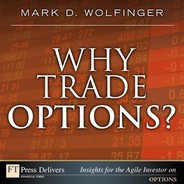The Stock Market Today
The problem is that today’s stock market is not your father’s (or grandmother’s) stock market. The world has changed. The concept of trying to find a sound business that can be expected to show steady growth for significant periods of time is no longer viable. Today’s stock market is dominated by businesses that are run by executives who sacrifice the longer term, seeking profits for today. And why shouldn’t they? Some CEOs are rewarded for boosting the current stock price, not to build businesses that can prosper and grow over the next few decades. The current quarterly earnings report is far more important than the future because of how company executives are compensated. Thus, earnings growth can be manipulated and there is no way for the individual investor to grasp the inner workings of various businesses. The touted advice to “do your own research” is a joke. Predicting the future is an extremely difficult undertaking, and it’s essentially impossible when the researcher cannot discover which publicly traded companies have managers with questionable integrity.
The recent past has not been kind to investors. In the United States, the Standard & Poor’s 500 Total Return Index (adjusted for dividends and splits) is only 25% higher today (November 2011) than it was at the turn of the century (January 1, 2001) (see Figure 1).
Figure 1 SPTR; January 2, 2001 through June 30, 2011
Major market declines have proven to be much more common4 than statistics predicted. As a result, every time a major decline occurred, a significant number of investors removed their life savings from the stock market. Many never returned, while the less fortunate returned just in time to participate in the next serious decline.
It is not easy. There is no longer a viable “set it and forget it” (buy and hold) investment strategy. Investors need, and should demand, portfolio protection. The sad truth is that protection has been available for decades, but most investors remain unaware of that fact.
What Can the Average Investor Do?
Financial writers and pundits tend to adopt the same advice: Don’t panic, don’t sell, hold on, the markets will surely return to previous levels, and so on. It’s not that this advice is terrible, but the truth is that these “advisors” have no idea what the future holds. Worse than that, they spew their advice to everyone, and we should all understand that investing is an individual process and there is no such thing as one size fits all.
Doesn’t it make more sense for the individual investor to take matters into his/her own hands and protect all or part of an investment portfolio—especially when history tells us to expect underperformance? If those money managers were consistently doing better than the market averages, if those pros were worth paying annual fees for market outperformance, that would be different. But they underperform on average.5
There is one more undeniable fact. Surveys have shown that investors believe that their trades earn more money than they actually do. Investors are confident that they can consistently outperform the major market averages. Why is that? Overconfidence? Refusal to face facts? The unwillingness to accept the fact that investing is a difficult undertaking?
One way to protect against overconfidence is to invest with less risk. For many, that means using options as a substitute for, or in combination with, investing in the stock market.

